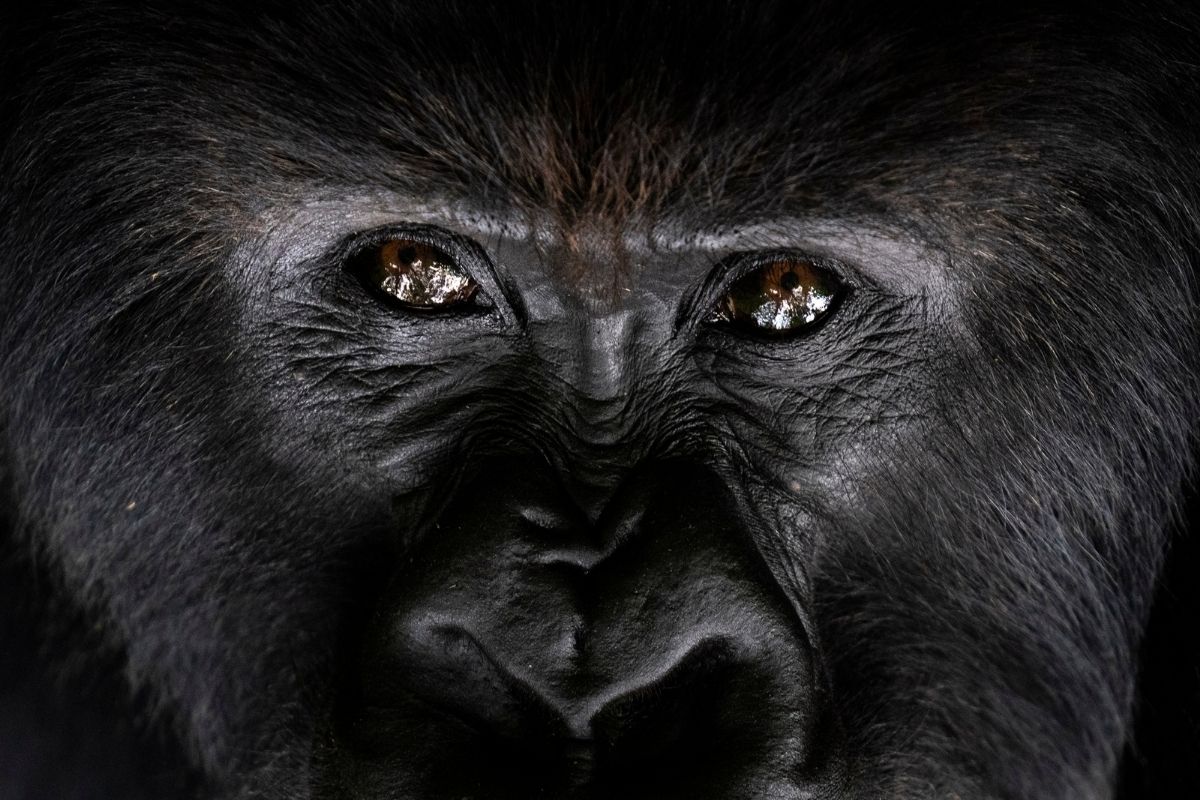It’s official: gorillas have the Covid. Add them to the long list of various animals that have tested positive throughout this long pandemic: dogs, cats, one household Slovenian ferret, plus other large zoo animals like lions, tigers, snow leopards, and pumas. Now two gorillas at the San Diego Zoo Safari Park in Escondido, California have joined those sickly ranks. Is this something we need to worry about?
Videos by Rare
Three Gorillas Test Positive for Coronavirus
When gorillas at the famed San Diego Zoo Safari Park appeared to be coughing and exhibiting mild symptoms, their handlers were rightly worried. Fecal sample testing confirmed that three gorillas in the zoo’s troop of western lowland gorillas were indeed sick with the virus, likely spread by an asymptomatic staff member. Although handlers have been wearing masks when interfacing with captive animals, precaution failed to prevent the viral spread to these primates. This marks the first recorded case of Covid-19 in any great ape, and has prompted a serious reaction.
Since there is no surefire treatment for Covid as of yet, the gorillas are being monitored closely and supplied with vitamins and fluid. Should their condition worsen, human doctors will step in. “Aside from some congestion and coughing, the gorillas are doing well,” the park executive director Lisa Peterson reported to the Associated Press. Zoo officials expect a full recovery. But you have to admit, the spread of the Coronavirus to this majestic species is a little frightening. After all, gorillas share 98.4% of their DNA with humans and as such, are highly social creatures. Living in such close and familial quarters, it seems like only a matter of time before this whole gorilla troop comes down with congestion.
All Great Apes have officially endangered species, with gorillas, in particular, facing a critical extinction crisis. In the past 30 years, 60% of the once vibrant species has vanished due to poaching, habitat destruction, and, surprisingly, respiratory illnesses. (These human-borne morbidities also have a devastating effect on chimpanzee populations. Chimps share a whopping 98.8% of their DNA with us!) Science Magazine reports that human respiratory viruses are already the leading cause of death among these wild primates in Africa, accounting for 20% of the mountain gorilla fatalities. The recent news from San Diego confirms were conservationists long feared and expected: that even a glorious silverback can indeed catch SARS-CoV-2.
Strains of Covid-19 in Non-Human Species
As we eagerly await the Covid-19 vaccination, the outbreak only seems to get bleaker. With a new, faster-spreading strain of Coronavirus racing around the globe, case numbers are spiking internationally. It can be helpful to remember how this virus mutates and spreads by looking back to its zoological roots: bats and pangolin.
Like other Coronaviruses, including SARS and MERS, Covid-19 is zoonotic. That means it spreads through different animals and humans alike. But with each jump between species, there runs the risk of a viral mutation which can make the sickness harder to fight off. Disease control for a zoonotic virus can be tough. In November 2020, Denmark went ahead and killed 17 million farm-raised minks in fear of a widespread outbreak that might have challenged their containment of the public health crisis. Of course, the situation at the San Diego zoo remains much more manageable. For now, we can be thankful that gorillas in the wild don’t seem to be exposed. And if you are interested in learning more about gorilla conservation, you can visit the Dian Fossey Gorilla Fund or the San Diego Zoo Global.



